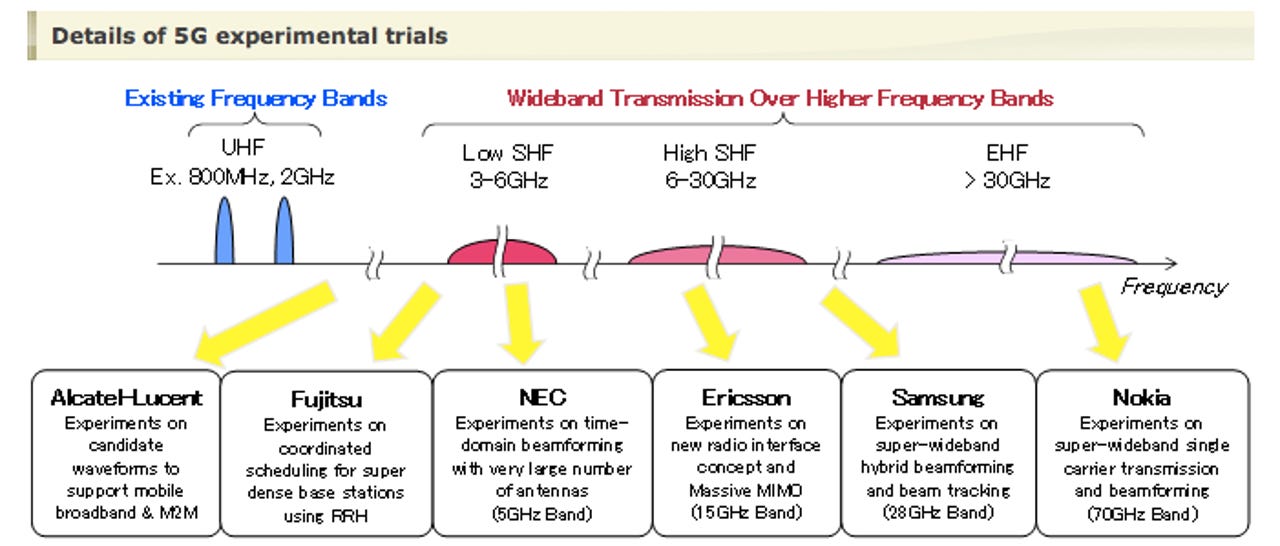5G trials kick off with Nokia, Samsung and more in Japan

With an eye on a 2020 rollout of 5G networks, Japanese carrier NTT Docomo has announced the six mobile vendors it will be working with on its test run of 5G technologies across a range of frequencies.
Vendors involved in Docomo's 5G efforts to exploit frequency bands above 6GHz are Alcatel-Lucent, Ericsson, Fujitsu, NEC, Nokia, and Samsung, although Chinese networking vendor Huawei is noticeably absent from the pilot. Docomo announced last year it was aiming to deploy 5G commercially by 2020 with speeds up to 10Gbps, compared with today's LTE networks which peak at around 100Mbps to 150Mbps.
Docomo will begin indoor trials this year at its R&D centre in Yokosuka in the Kanagawa prefecture, ahead of outdoor field trials scheduled for next year. As the company notes, it will share its research with other industry players to help with 5G standardisation from 2016.
The tests will be an important measure of how technologies can exploit frequency ranges above the congested lower band frequencies generally used by mobile networks today.

Docomo will be running experiments with each of the vendors in parallel, with Nokia taking on trials with millimetre wave technology and 'beam forming' at the 70 GHz spectrum band.
Samsung, which announced last year its beam forming could transmit data at 1Gbps over 2km distances, will be testing its technology with Docomo at the 28GHz band.
Meanwhile, Ericsson will join Docomo's outdoor experiments at the 15GHz band, exploring new antenna technologies supporting Massive MIMO, which use additional antennas to improve throughput.
NEC and Fujitsu are joining the trial at the lower end of the higher frequency bands between 3GHz to 6GHz. NEC's experiments will focus on "time-domain beam forming" with a large of antennas for small cells at the 5GHz band.
Meanwhile Fujitsu will work on technology to "increasing capacity per area using small cells deployed in high density with remote radio connection". Fujitsu explains it will work with Docomo to "verify that a coordinated radio resource scheduling algorithm for very densely deployed base stations using remote radio head (RRH), will increase 5G capacity per area".
Lastly, Alcatel-Lucent will use existing frequency bands below 3GHz to support mobile broadband and M2M applications.
The Japanese carrier's trials follow South Korean SK Telecom's announcement earlier this year that it will invest about $1.5bn in 5G technologies by 2020.